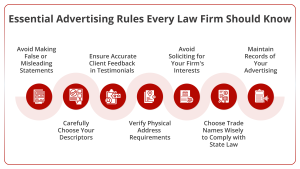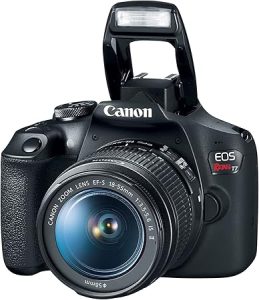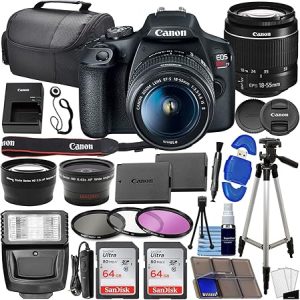In the 1800s, American lawyers used newspaper ads to attract clients. Over time, concerns about the profession’s dignity led the American Bar Association (ABA) to discourage these practices. This changed in 1977 when the U.S. Supreme Court ruled in Bates v. State Bar of Arizona that legal advertising is a form of free speech, thus allowing more open marketing strategies within regulated limits.
Today, law firms use digital platforms extensively, a shift that has become more significant as
interactions move increasingly online. This transition to digital marketing is crucial for connecting with clients effectively.
Participating in conferences like those organized by Destination CLES is highly beneficial. These events provide insights into best practices, offer networking opportunities, and help you stay informed about regulatory changes. Such knowledge is essential to ensure your marketing efforts remain practical and ethical. Adapting and learning through platforms is essential as we delve into how to advertise your law firm without violating ethical standards.
Understanding Legal Advertising Rules
Understanding the regulations is crucial to ensure compliance and maintain professional integrity when advertising your legal services. Here are important guidelines on who regulates attorney advertising and what you need to consider:
American Bar Association
The American Bar Association (ABA) sets foundational guidelines through the Rules of Professional Conduct, applicable nationally. Specifically, ABA Rule 7.2 focuses on communications concerning a lawyer’s services, allowing marketing across various platforms but with specific restrictions to ensure ethical advertising. As per ABA advertising restrictions, ads must include the contact details of at least one lawyer from your firm. You cannot claim to be a specialist unless you have received formal certification in that area of law.
State-Specific Regulations
Beyond the ABA’s regulations, each state can impose additional constraints. For example, New York has notably complex rules governing attorney advertising. If your practice operates across multiple states, reviewing and understanding the specific advertising rules in each jurisdiction is essential.
Multi-State Practices
For firms with a multi-state presence, thorough compliance reviews are vital before launching any advertising campaigns. This ensures that your marketing efforts adhere to the distinct rules of each state where your firm operates.
Regular updates and training on these regulations are important for all members of your firm. Staying informed about changes in advertising rules can protect your practice from potential ethical violations and uphold your firm’s reputation.
Essential Advertising Rules Every Law Firm Should Know
Below are the crucial advertising rules every law firm needs to follow to stay compliant and ethical:
Avoid Making False or Misleading Statements
When advertising your legal services, avoiding false or misleading statements is essential. The American Bar Association (ABA) Rule 7.1 stipulates that communication about a lawyer’s services must not be deceptive or lead to unrealistic expectations. Here’s what you need to consider to stay compliant:
- Be cautious not to omit crucial information that provides necessary context to your claims.
- It is unethical to guarantee outcomes. For example, suggesting that a new client will experience the same success as previous clients can imply a guarantee of results, which is strictly prohibited. Instead, you can discuss your processes and strategies to strive for the best outcomes.
- To avoid misleading potential clients, include qualifiers in your ads that clarify the context of your claims. For instance, if you offer a “free consultation,” specify any conditions that apply, such as the consultation being limited to a certain duration.
- Avoid comparisons that claim superiority over other law firms unless they can be objectively verified. Statements like “the lowest fees” must be supported by evidence. If you advertise competitive fees, clarify what makes them competitive, such as including flexible payment options.
Carefully Choose Your Descriptors
Under ABA Rule 7.2, specific descriptors that imply specialization or expertise are prohibited unless you are formally certified in that area of law. Here’s what you need to know to ensure your language adheres to these guidelines:
- Refrain from using terms like “expert,” “specialist,” or any other language that suggests you have a formal designation unless you have received such certification from an ABA-accredited organization or an authority recognized by your state, district, or U.S. Territory. This is crucial because using these terms inaccurately could mislead potential clients about your qualifications.
- Be wary of comparative language such as “premier,” “leading,” “top,” and “best.” Legal advertising generally considers these terms problematic because they can create unjustified expectations and are difficult, if not impossible, to substantiate.
- While you cannot claim to be a specialist without certification, you can accurately describe your practice’s focus. For instance, you can state that you handle appellate law matters or that your practice is focused on environmental law, as long as you do not imply certified expertise.
- Be aware that each state may have variations in the rules that govern legal advertising. Some states may have stricter regulations regarding specific terms or require additional disclosures when advertising legal services. It is advisable to review your state bar’s rules to ensure full compliance.
Ensure Accurate Client Feedback in Testimonials
When using client testimonials in your law firm’s marketing, adhering strictly to ethical advertising rules is crucial.
ABA Rule 7.2 (b) clearly states that clients must not be compensated in any form for testimonials. This means you cannot offer payment, discounts, or any incentives for positive reviews. Testimonials must come voluntarily from clients who share their positive experiences without your prompts or rewards.
- Be cautious of how these testimonials are presented in your advertising to avoid misleading future clients. For instance, in California, you cannot use testimonials that might lead someone to expect the same results as the testimonial giver. This rule aims to prevent unrealistic expectations about the outcomes of legal services.
- Always ensure that any testimonial used in your advertising is truthful and not misleading. The Federal Trade Commission (FTC) also mandates that testimonials in advertising must reflect honest opinions and experiences.
- Before publishing, it’s advisable to consult your state bar’s specific rules for testimonials to ensure full compliance and maintain your legal practice’s integrity and trust.
Verify Physical Address Requirements
If you’re considering remote operations for your law practice, you must check whether you need a physical office address for advertising. This rule helps ensure your legal services are accurately represented in your marketing materials. Always verify local advertising regulations to ensure compliance and avoid potential issues.
Avoid Soliciting for Your Firm’s Interests
Advertising and soliciting may seem similar, but they are distinct under the law, and recognizing this difference is crucial for maintaining ethical standards in your practice.
Advertising is general communication about the services a lawyer or law firm offers intended for the public. The main purpose of advertising is to inform and educate the general public about available legal services without targeting specific individuals. This method includes online content, television ads, billboards, or print media that do not single out individuals or particular groups.
On the other hand, soliciting means direct marketing aimed at specific individuals or groups, especially those who need legal services in a particular matter. According to ABA Rule 7.3, soliciting is generally prohibited, mainly if done in person and with the primary motive of financial gain. However, solicitation is permissible under certain conditions:
- The recipient is another lawyer.
- A familial, close personal, or prior professional relationship exists.
- The recipient routinely uses the type of legal services offered for business purposes.
Choose Trade Names Wisely to Comply with State Law
When marketing your law firm, trade names are subject to state-specific regulations. For example, in New York, a trade name that doesn’t include the names of partners or former partners can be restricted to prevent public deception.
Using actual partner names in your firm’s title is often safer to maintain transparency and comply with local rules. Before adopting a trade name for marketing purposes, ensure it aligns with your state’s legal advertising guidelines.
Maintain Records of Your Advertising
As a lawyer, it’s important to keep records of your advertising, similar to how you maintain client records.
In several states, retaining copies of your advertisements, both physical and digital, is legally mandated. For example, in New York, Rule 7.1 requires lawyers and law firms to keep copies of physical advertisements, such as direct mail, for three years.
Digital advertisements must be retained for at least one year after their initial dissemination. Furthermore, if your law firm has a website used for advertising, you need to preserve the content—at least every 90 days—especially after any major redesigns or significant content updates. To stay compliant, always check the specific guidelines in your jurisdiction regarding the duration and type of advertising records you must keep.
Law Firm Advertising: Following Content Guidelines for Compliance
When creating advertisements for your law practice, it’s crucial to understand what information you can include and what you should avoid. This ensures compliance with the advertising rules specific to your jurisdiction.
Information You Can Include:
- Most jurisdictions require the inclusion of specific identifying information. For example, in Florida, advertisements must include the name of at least one lawyer or the law firm itself. Some states also require advertisements to be clearly labeled as such; New York, for instance, mandates that certain ads must be identified as “Attorney Advertising.”
- You can generally mention law-related publications or legal industry accolades in your ads.
- Details about current memberships in bar associations or professional organizations can typically be included.
- If applicable, you may disclose your hourly or fixed rates.
Information to Avoid:
- Under Rule 7.1 of the New York Rules of Professional Conduct, avoid including testimonials from clients involved in pending cases unless you have obtained their informed written consent.
- Using made-up law firms, lawyers, or scenarios in your advertising is prohibited to prevent misleading potential clients.
- Including faux legal documents or imagery that could be misleading is prohibited.
Consequences for Attorneys Who Violate Marketing Rules
Lawyers who fail to adhere to marketing regulations may face severe disciplinary actions similar to those for other professional violations. The types of sanctions include:
- Disbarment: The most severe penalty revokes your legal right to practice law and removes your status as an attorney.
- Reprimand: A reprimand damages your public image significantly as it becomes a public record, often published in legal journals and local newspapers.
- Admonition: This is a formal warning for minor infractions unlikely to recur. It serves as a lesson to others without naming you specifically.
- Suspension: This involves a temporary halt to your legal practice, lasting up to three years.
- Probation: Your practice is closely monitored while on probation. Typically, probation lasts up to two years but can be extended if necessary.
- Cost Tallying: You might also be liable for the costs associated with the disciplinary proceedings.
- Restitution: If your actions cause financial loss, you may need to compensate the affected parties.
- Limitation: You may be restricted in your future practice, limiting the type of law you can practice or the number of cases you can handle.
Understanding and adhering to marketing rules is crucial for maintaining legal practice and professional standards.
What Lawyers Gain from Attending Conferences?
Attending conferences is an excellent opportunity for lawyers to stay on top of industry trends, refine their skills, and expand their professional network. Destination CLEs conferences often combine top-tier education with the chance to explore new destinations, creating a dual benefit for attendees.
Expand Professional Networks
Conferences often bring together legal professionals, tech experts, and service providers. Networking at these events can lead to collaborations to help your firm adopt modern digital tools.
Earn CLE Credits
Beyond networking and learning, attending these conferences helps lawyers earn valuable CLE credits required for maintaining their licenses.
Gain Insights into Legal Marketing
Destination CLEs introduce lawyers to the latest legal trends and innovations outside their immediate geographic and practice areas. This broadens their understanding and brings fresh perspectives into their practice. The unique setting of these conferences rejuvenates the mind and increases engagement, making learning more enjoyable and effective.
Meet, Learn, Explore: Join Us at Our Next Destination CLE
Destination CLEs redefine the way legal professionals meet their continuing education requirements. Our conferences blend educational opportunities with cultural immersion in some of the world’s most captivating cities.
Why Choose Destination CLEs?
- Meet CLE Requirements: Fulfill your mandatory CLE credits through engaging, high-quality seminars in stunning global locations.
- Transformative Learning: Turn the usual lecture-based learning on its head by engaging in sessions as dynamic as the destinations.
- Networking Opportunities: Connect with peers worldwide, expanding your professional network in settings that encourage collaboration and growth.
- All-Inclusive Experience: Enjoy comprehensive packages that cover educational sessions, accommodations, and unique cultural experiences, making your learning adventure seamless and memorable.
- Efficient Credit Earning: Earn required CLE credits efficiently, with schedules that balance professional development and exploration.
Plan your next educational journey with Destination CLEs and ensure extraordinary professional development. Our 2024-2025 lineup includes diverse locales such as Puerto Vallarta, Dubai, Havana, and an Alaska Cruise—each offering a distinct blend of legal education and local culture.
Secure your spot today and become part of a community dedicated to professional growth and networking.
DestinationCLEs.com is a participant in the Amazon Services LLC Associates Program, an affiliate advertising program designed to provide a means for sites to earn advertising fees by advertising and linking to Amazon dot com.











